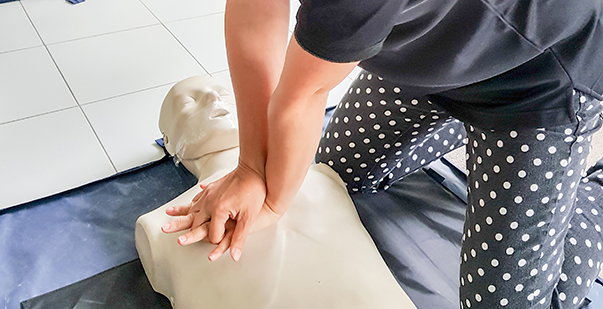Rural areas are general spaces that have fewer medical and emergency care facilities. These places are generally far from the city limits. So, it also takes time for the emergency medical team to reach out. Taking life-saving courses can help you gain confidence to help unknown people. However, the problem of emergency care can be dealt with by promoting ACLS training in rural areas. Read more about this course and its importance in the rural area below.
Master ACLS Now
Get ACLS certified with confidence
ACLS Training: Bringing Critical Care to Rural Areas
Advanced cardiovascular life support (ACLS) training is essential for critical care in rural areas. This is because rural areas often have longer response times for emergency medical services (EMS). So, bystanders and laypersons trained in ACLS can save lives. There are several ways to get ACLS training in rural areas. Some hospitals and community colleges offer ACLS courses, and there are also online ACLS courses available.
ACLS training typically covers the following topics:
- Cardiac Anatomy And Physiology: This includes the structure and function of the heart.
- Cardiac Arrhythmias: This consists of the different types of heart arrhythmias and how to treat them.
- CPR: This consists of techniques for chest compressions and rescue breaths.
- AED: AEDs include instructions on how to use an AED to deliver a shock to the heart.
- The Administration Of Medications: This consists of the medicines that are used to treat cardiac arrest.
ACLS training can be a life-saving skill for anyone who lives in a rural area. By being trained in ACLS, you can help to save a life if someone you know or see goes into cardiac arrest.
Read More: Acls promo code
The Impact of ACLS Training in Remote Healthcare Settings
Here are some of the benefits of ACLS training in remote healthcare settings:
- Increased Survival Rates: CPR and defibrillation can improve the survival rate. However, it must be delivered on time and by a trained person. Once trained, you can save more lives.
- Improved Access To Care: By providing ACLS training in remote healthcare settings, more people will have access to the skills they need to save a life.
- Reduced Response Times: Bystanders and laypersons trained in ACLS can be prompt with CPR. Giving timely CPR and using an AED before EMS arrives can help reduce response times and improve survival rates.
The Crucial Role of ACLS Training in Rural and Remote Healthcare
Advanced Cardiovascular Life Support (ACLS) training is crucial in rural and remote healthcare settings. Because these settings often have more extended emergency medical services (EMS) response times, bystanders and laypersons trained in ACLS can play a vital role in saving lives. There are several reasons why ACLS training is so necessary in rural and remote healthcare settings.
- Rural settings often have longer response times for EMS. If someone goes into cardiac arrest, it may be several minutes before EMS arrives. During this time, the person’s heart may not get enough oxygen, leading to brain damage or death.
- Rural and remote healthcare settings often need more healthcare providers. It means fewer people may be trained in CPR and using AEDs. It is here that ACLS training can be a lifesaver. Bystanders and laypersons trained in ACLS can start CPR and use an AED before EMS arrives, which can help improve the person’s chances of survival.
- ACLS training can improve the confidence and skills of healthcare providers who work in rural and remote settings. It can help save lives faster and create a more positive work environment.
There are several ways to get ACLS training in rural and remote areas. Some hospitals and community colleges offer ACLS courses, and there are also online ACLS courses available.
Here are some additional benefits of ACLS training in rural and remote healthcare settings:
- Increased Confidence: When people in remote places know they have trained professionals, they can also feel confident. They know there is someone to help and may even want to take the course themselves.
- Improved Teamwork: ACLS training can help strengthen teams. You can form collaboration among healthcare providers in rural and remote settings. In rural settings, it helps to have more people help in an emergency.
- Reduced Stress: An emergency in a rural setting can get nerve wrecking. Most people do not know the steps to follow in a crisis. ACLS training can help reduce stress levels for healthcare providers in rural and remote settings.
Conclusion
ACLS training for rural areas can be a life-saving skill. By being trained in ACLS, you can help save a life. If you are interested in getting ACLS training, several resources are available. The Advanced Cardiovascular Life Support Now website offers affordable courses online. Through this platform, you can educate yourself and help others take comprehensive and recognized ACLS courses. You also get continuing education credits for finishing the course. Register now for group discounts and offers.







